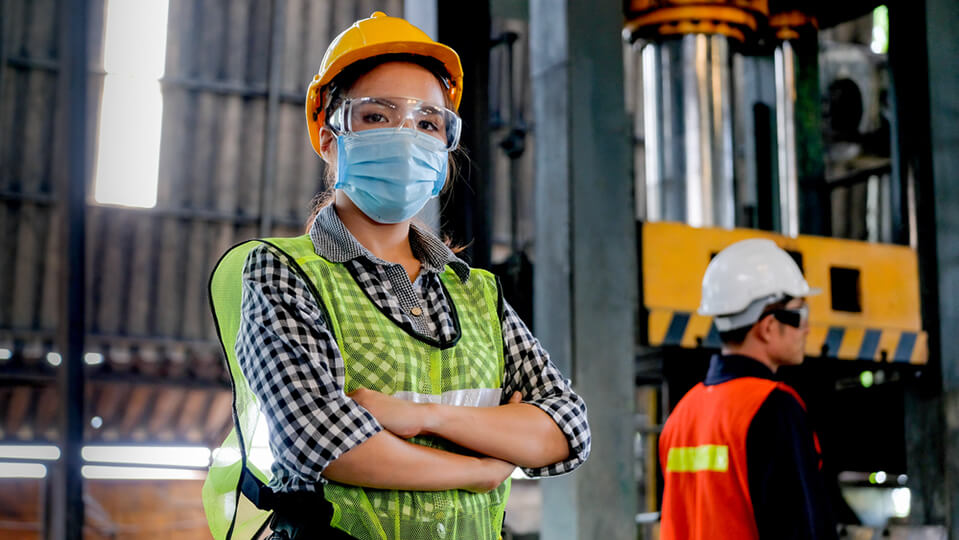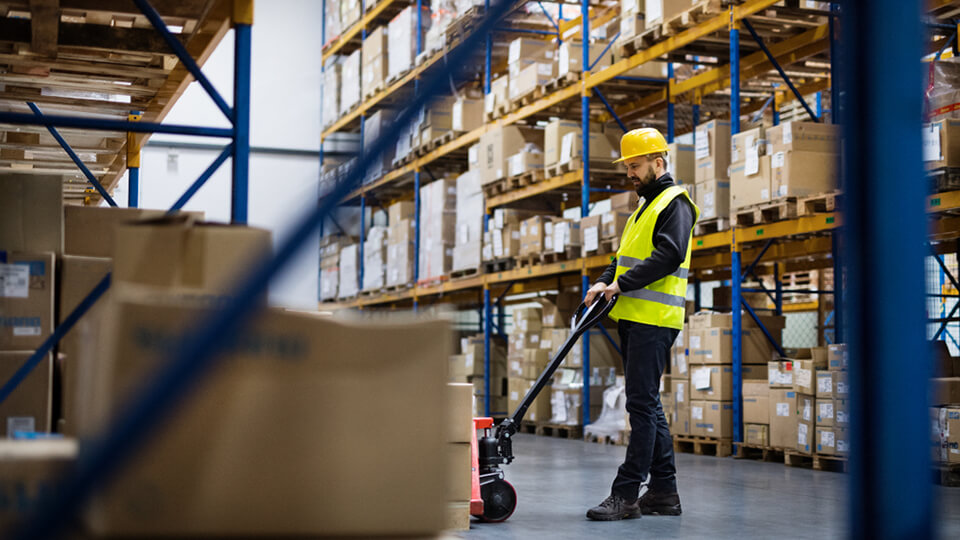How clean is the air at your job?
In our homes, there’s a lot we do day-to-day to maintain good air quality. We might flip on the ventilation fan when we cook, or open the windows on a nice day. We vacuum, try to stay on top of dust or mold, and change the filters in our HVAC system.
But at work, a lot of these tasks are out of hands. We don’t necessarily know what chemicals are used to clean the bathrooms, how far toner particles from the office copier travel, or whether the warehouse’s burst pipe left lasting water damage. If we work with powerful chemicals, gasses or solvents, the risks are even greater.
Indoor air pollution can cause short- and long-term health problems. It’s an issue in old buildings, remodeled structures and brand-new construction. The good news, though, is that workplaces can improve their air quality. In fact, they have a responsibility to do so. Under OSHA, employers must provide a workplace free from recognized hazards, and that includes airborne hazards and poor air quality.
So, what are the signs of indoor air pollution? And what should you do if you believe the air in your workplace is unsafe?
Causes of poor indoor air quality
In some workplaces, chemicals, solvents or fiber particles are part of the job. Employees should receive training, and employers should use Material Safety Data Sheets and container warnings to avoid mishandling. Equipment investments, like ventilation systems and protective gear, can further minimize risk.
But not every workplace with air quality issues has an obvious occupational culprit. Common causes of indoor air pollution may include:
- Copy machines and printers, which can emit toner particles, ozone and VOCs
- Indoor smoking
- Cleaning chemicals
- Air fresheners
- Furniture, paint and carpeting
- Remodeling
- Poor HVAC maintenance
- Water damage leading to mold and mildew
- High humidity
- Outdoor air issues, like garage exhaust or construction debris, entering indoor areas
Indoor air pollution health problems
For many workers, the negative health effects of indoor air pollution come on slowly. Headaches, sneezing, irritated eyes or fatigue are easy to attribute to other things, like colds, seasonal allergies or even stress. But then patterns emerge. Symptoms might disappear at home and return in the morning, or a conversation with colleagues might reveal everyone is struggling with the same problems.
According to the American Lung Association, unhealthy air may cause the following short-term symptoms:
- Headaches
- Eye, nose or throat irritation
- Coughing
- Painful breathing
- Bronchitis
- Skin irritation
In more extreme cases, indoor air pollution can even cause or contribute to asthma, emphysema, cancer or cardiovascular disease.
What to do if you suspect indoor air pollution at work

If you experience health problems that could be tied to air quality, talk to your doctor. You’ll also want to tell your supervisor or building manager about any facilities issues or risks you’ve noticed. Document this conversation and be as specific as you can.
From there, your employer should keep you briefed on steps they’re taking to identify and fix the problem. Sometimes the solution is simple: After identifying air flow issues, the employer may schedule HVAC maintenance and check to make sure furniture and stored items aren’t blocking vents and intakes. If the problem is harsh cleaning solutions, the employer may ask the janitorial vendor to switch products. Sometimes, though, remediation involves major overhauls, like replacing carpeting and sheetrock or installing air scrubbers or new ventilation systems.
If your employer doesn’t take any actions, you can also request a workplace inspection from OSHA.
For most people, short-term symptoms should resolve after an employer fixes indoor air quality issues. If your health is severely affected, however, or if ongoing problems cause your condition to worsen, you may end up missing work. If you can connect your illness or occupational disease to your job, you may have a workers’ comp claim.
Talk to an Atlanta workers’ compensation attorney today
If you’ve developed a serious condition from your workplace’s poor air quality, you’ll need a workers’ comp lawyer to help with your case. Contact the Law Offices of Laura Lanzisera today for a free consultation, or give us a call at 404-991-5097.

Leave a Reply
Want to join the discussion?Feel free to contribute!